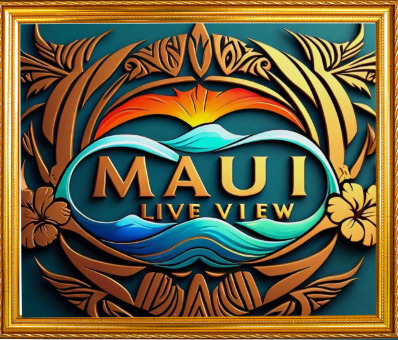Pukalani, Maui Webcams
The Rise of Pukalani: From Pineapple Fields to Upcountry Hub
Pukalani, Maui Webcams. Nestled on the verdant slopes of Haleakalā, Pukalani has emerged as a vibrant residential community in Maui’s Upcountry region. Its name, meaning “heavenly gate” or “hole in the heavens” in Hawaiian, befits its location at an elevation of about 1,700 feet. The history of Pukalani is intrinsically tied to the agricultural and cultural evolution of Maui, reflecting the island’s transition from ancient Hawaiian settlements to plantation-era development and modern suburban growth.
In pre-contact times, the area now known as Pukalani was part of the larger Kula moku (district) of Maui. Native Hawaiians primarily used this Upcountry region for small-scale farming and gathering of forest resources. The cooler climate and fertile volcanic soil were ideal for cultivating crops such as sweet potatoes, taro, and various medicinal plants.
The arrival of Western influence in the late 18th and early 19th centuries brought significant changes to Maui’s landscape and economy. As the sugar industry took hold in the lowlands, Upcountry areas like Pukalani remained largely undeveloped. However, the region’s potential for agriculture did not go unnoticed for long.
The turn of the 20th century marked a pivotal moment in Pukalani’s history with the introduction of pineapple cultivation. In 1908, Henry Perrine Baldwin, co-founder of Alexander & Baldwin, established Maui Pineapple Company. This venture would transform the Upcountry landscape and economy for decades to come.
Vast tracts of land in and around Pukalani were converted into pineapple fields. The industry brought jobs and infrastructure to the area, attracting workers from various ethnic backgrounds, including Japanese, Filipino, and Portuguese immigrants. These laborers and their families formed the foundation of Pukalani’s diverse community.
Throughout the first half of the 20th century, Pukalani remained a small, rural settlement primarily centered around pineapple cultivation. The community gradually grew, with modest homes and small businesses sprouting up to serve the local population. The opening of the Kula Highway (now known as Haleakalā Highway) in the 1930s improved access to the area, connecting it more closely with other Upcountry communities and central Maui.
The post-World War II era brought significant changes to Pukalani and Maui as a whole. The island’s economy began to shift away from agriculture towards tourism, and suburban development started to reshape many communities. Pukalani’s transformation into a residential hub began in earnest during the 1970s.
In 1973, Pukalani Terrace Center opened its doors, marking a significant milestone in the area’s development. This shopping center provided residents with convenient access to goods and services, reducing their dependence on trips to Kahului or Wailuku. The center quickly became a focal point for the community, hosting events and serving as a gathering place for Upcountry residents.
The following decades saw rapid growth in Pukalani. New residential subdivisions were developed, attracting families seeking a quieter alternative to the more bustling towns in central and south Maui. The community’s elevation provided cooler temperatures and stunning views of the island, making it an appealing location for both locals and newcomers.
Education played a crucial role in Pukalani’s development. The opening of King Kekaulike High School in 1995 was a significant event, providing Upcountry students with a local option for secondary education. This addition not only enhanced educational opportunities but also strengthened the community’s identity and cohesion.
As Pukalani grew, it maintained a delicate balance between development and preservation of its rural character. The community successfully resisted some large-scale development proposals, striving to maintain its Upcountry charm and connection to the land.
Today, Pukalani stands as a thriving residential community of approximately 7,500 residents. Its location at the crossroads of Kula Highway and Haleakalā Highway has cemented its role as a central hub for Upcountry Maui. The town offers a mix of local businesses, schools, parks, and community facilities, serving both its residents and those from surrounding areas.
Agriculture, while no longer the dominant economic force, remains an important part of Pukalani’s identity. Small farms and agricultural lots persist, producing a variety of crops and supporting the island’s push for greater food sustainability. The Upcountry Farmers Market, held weekly in Pukalani, showcases this enduring connection to the land, offering locally grown produce and artisanal products.
Pukalani’s history is also preserved and celebrated through various community initiatives. The Pukalani Community Association works to maintain the area’s unique character and advocate for responsible development. Local events, such as the annual Upcountry Fair, help to foster community spirit and honor the diverse cultural heritage of the region.
As Maui faces ongoing challenges related to housing, sustainable development, and economic diversification, Pukalani continues to evolve. The community grapples with issues such as water resources, affordable housing, and maintaining its rural atmosphere in the face of growth pressures.
Looking to the future, Pukalani’s residents and leaders are focused on smart growth strategies that balance development needs with environmental and cultural preservation. Efforts are underway to improve infrastructure, expand renewable energy use, and enhance community facilities while maintaining the town’s Upcountry identity.
From its roots as Native Hawaiian agricultural lands to its transformation into pineapple fields and its current status as a vibrant residential community, Pukalani’s history reflects the broader story of Maui’s development. As it moves forward, this Upcountry town remains committed to honoring its past while embracing the opportunities and challenges of the future, truly living up to its name as a “heavenly gate” in the heart of Maui.
For more information, visit the official Maui website. Paia Bay Beach, Maui Webcams
